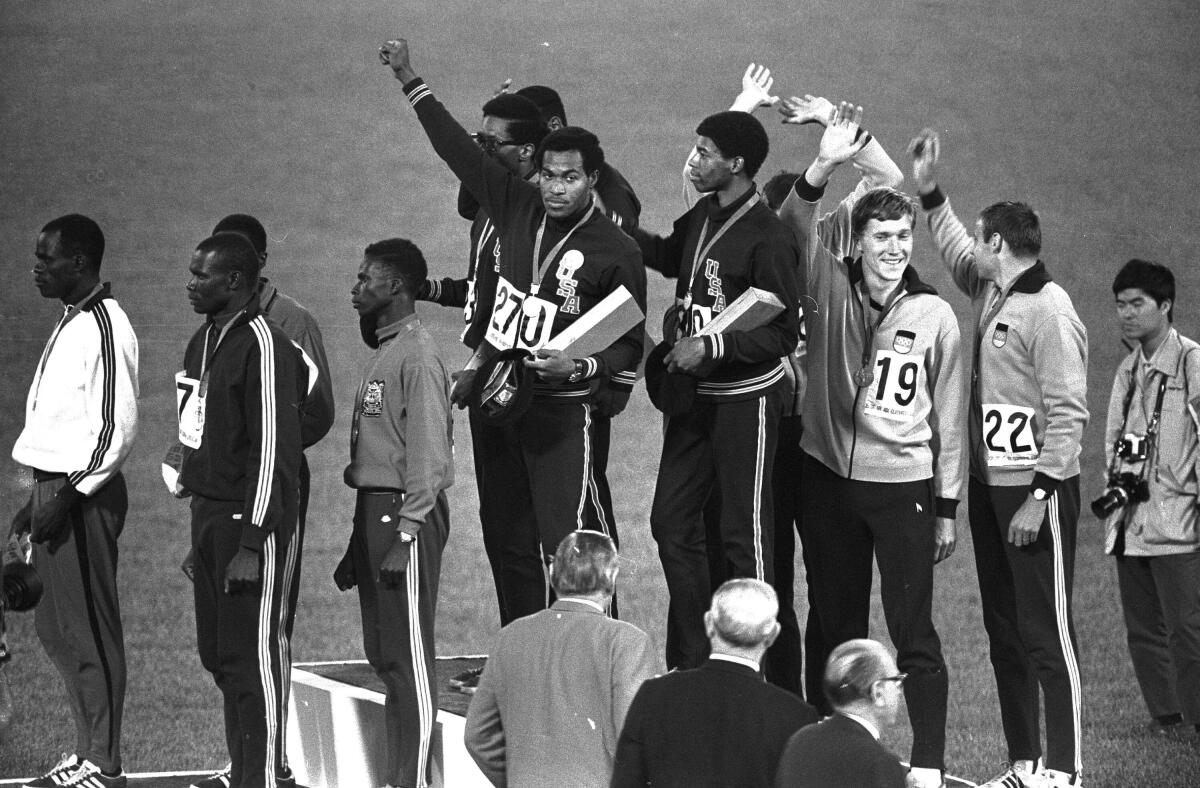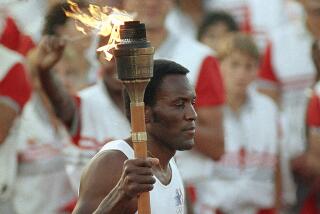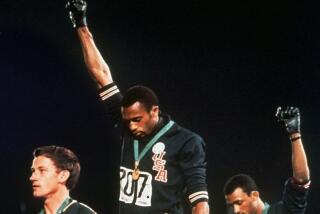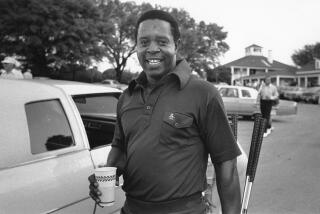Lee Evans, Olympic sprinter who protested racism at 1968 Games, dies

- Share via
Lee Evans, the record-setting sprinter who wore a black beret in a sign of protest at the 1968 Summer Olympics and then went on to a life of humanitarian work in support of social justice, died Wednesday at age 74.
USA Track and Field confirmed Evans’ death. The San Jose Mercury News reported that Evans’ family had started a fundraiser in hopes of bringing him back to the U.S. from Nigeria, where he coached track, to receive medical care after he suffered a stroke last week.
Evans became the first man to crack 44 seconds in the 400 meters, winning the gold medal at the Mexico City Games in 43.86. His victory came shortly after his teammates, Tommie Smith and John Carlos, were sent home from the Olympics for raising their fists on the medals stand.
In later interviews, Evans said an official warned him not do anything similar. Evans, who briefly considered dropping out of the Olympics after Smith and Carlos were sent home, wore a black beret to show support for the Black Panther Party and other civil rights organizations. He did ultimately raise his fist on the medals stand.
“Lee Evans was one of the greatest athletes and social justice advocates in an era that produced a generation of such courageous, committed and contributing athlete-activists,” said Harry Edwards, the architect of the Olympic Project for Human Rights, of which Evans was a key member.
Like Smith and Carlos, Evans was a college star on the San Jose State “Speed City” teams. And like his teammates, he earned his platform at the Mexico City Games with an indelible performance on the track. After running his 43.86 in the 400, Evans anchored the U.S. 1,600-meter relay team to a world record of 2:56.16. The 400 record stood until 1988. The relay record stood until 1992.
Evans also won five U.S. titles at 400 meters and is a member of both the USATF and U.S. Olympic halls of fame. Many remember him just as much for his post-retirement career as for his achievements on the track.
He coached at Washington, San Jose State and South Alabama, and was director of athletics for the Special Olympics. San Jose State, in its obituary on Evans, said he coached national teams for Qatar, Cameroon and Nigeria. Evans was in Nigeria coaching high school track when he suffered the stroke last week.
The school said Evans received the 1991 Nelson Mandela Award for those who “stood for the values of equality and friendship and respect of human rights, against apartheid and any form of racism.” He also worked on the Madagascar Project, which helped provide fresh water and self-sustaining farming techniques.
More to Read
Start your day right
Sign up for Essential California for the L.A. Times biggest news, features and recommendations in your inbox six days a week.
You may occasionally receive promotional content from the Los Angeles Times.






